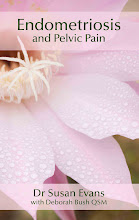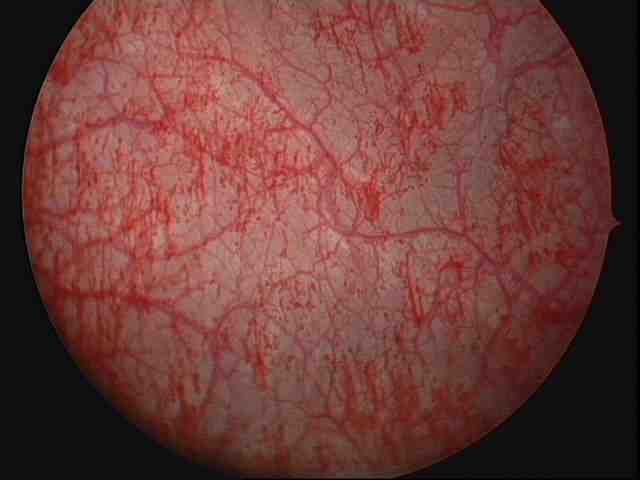Thanks for joining my blog. I was very sorry to read about your bladder problems which make the whole endometriosis thing even more difficult.
Regarding diet and medications, I have a few suggestions:
1. Although there is quite a long list of foods and drinks that can upset the bladder of a woman with IC, often only a few of them affect each woman. So, if you can find the particular things that bother you, then you can still have the other things that don't. Often it is easier if you cut out all the things on the list completely to start with, and see if your bladder improves. It should improve within a few days if diet is an important trigger for you. If your bladder doesn't improve, and you have cut out the triggers completely (not just cut them down) then diet may not be an important factor for you. If it does make a difference, then you can add things back into your diet one at a time and see which foods affect you. If not, then that food is OK for you.
2. What you will find with IC is that you will have good times and bad times. During the bad times, you need more medication and during the good times, you might be able to take less, or sometimes stop it for a period of time. It depends how bad your IC is.
3. I usually recommend amitriptyline in low dose first, because it often helps, but also because it also helps other problems that a lot of women with endo have i.e. headaches and sharp/stabbing/burning pains. It also helps sleep. If you start on just 5mg, and take it with dinner or early in the evening, then most people can take it. 5mg is just a starting dose, but once you are OK with it, you can increase it to somewhere between 5mg and 25mg daily. You can work out yourself which dose helps your bladder most, but doesn't make you too sleepy.
4. If amitriptyline doesn't suit you, then I usually recommend either solifenacin 5-10mg daily which is more expensive but usually really well tolerated, or oxybutinin a 5mg tablet 1-3 times daily which is less expensive but can cause constipation and a dry mouth. Often the best thing is to take a bit of amitriptyline (5-10mg) with some solifenacin. I know you don't like taking medications, but your symptoms are hard to treat without it.
5. Remember not to try and cut down on your fluids, as the more concentrated urine is, the more it irritates your bladder. Generally about 1.5-2 litres of mostly water daily is about right. More if you live in a hot climate.
6. A lot of women with endo and IC, also have pain with intercourse, and often have pain from tight pelvic floor muscles that go into spasm, so be aware that some of your pain may actually be from your pelvic floor muscles. You can check by putting a finger just inside the vagina and pushing backwards and sideways. If it is sore, then your muscles are probably painful. If you find tampons painful, this is often also a sign of painful muscles. Its another of the pains you don't see at a laparoscopy.
Hope this helps. If you need a list of diet triggers, it is in our book in the chapter on IC treatment. There is also info on medications and some of the treatment options if these dont help, as well as a plan for how to manage a flare up in symptoms.
Best wishes,
Susan




In 2009, a panel of IC experts, dietitians and researchers met and drafted a new, more comprehensive IC diet. You might find this interesting. http://www.ic-network.com/diet/
ReplyDeleteI was very interested to see you recommend amitriptyline. I suffer (we think) from endometriosis. I had surgery and they could not locate the cause of my pain. The doctors answer to my chronic pain was a shrug of the shoulders. I suffered pain during my period for years and then as I got older the pain would continue up to two weeks after my period with severe cramping. Finally I take Birth Control continuously which certainly improved the quality of my life and I am pain free most of the time. Anyway I am also on amitriptyline for migraines which has helped. I didn't realize the two problems could be linked. I also fatigue easier than most people and drs. never found a cause for this. Glad to see the medical community is taking this problem more seriously.
ReplyDeleteI am so excited to see this blog! I was diagnosed with endo in July of 2006, after 2 years of painful ovulation. I have since had another surgery and had stage 2 endo excised, unlike the first time where it was lasered off. However, my ovulation pain still is crippling. I am at a loss and have looked everywhere for help. All of the doctors I have seen have told me that many women have pain with ovulation. Mine is so severe that it has landed me in the ER a few times. I've just learned to deal with it. It starts a few days before ovulation (cd 9) and stops when I ovulate. We have been trying to have a second baby for 6 years, to no avail. Any advice or help for my ovulation pain? I've recently cut back on wheat and cut out all meat, except fish in order to help. I took birth control pills for the last 2 1/2 months to try and have a couple of months without pain, which isn't helping us conceive. Plus, I ended up with a 5.4cm cyst, that luckily disolved. I stopped taking the bcp because they weren't even helping with my ovulation pain. Any advice is so appreciated.
ReplyDeleteDear Amanda,
ReplyDeleteMy apologies for taking so long to reply.
My first thoughts are whether or not the pain is truly ovulation pain. If it truly is ovulation pain then:
1. It should go away on the contraceptive pill
2. You shouldn't get it on the same side of the pelvis every month. It should swap sides approximately each month, because usually only one ovary ovulates each month
3. It should come almost exactly 14 days before a period
Another possibility is that the pain is worsened by the increase in estrogen at that time. If you have either some endometriosis, or, more likely some neuropathic pain on that side, then sometimes it gets worse mid cycle due to hormonal changes. The treatment options are more limited in someone trying to become pregnant. If not trying to become pregnant, or if pregnancy seems unlikely then you could try:
1. A diclofenac 100mg rectal suppository when you get the pain. It often works better than tablets, lasts 12 hours and might avoid the trip to a hospital. The risk to a pregnancy is low, but not zero.
2. Taking a medication such as amitriptyline in low dose to cut down the number of pain signals sent by nerves in the pelvis. This is taken in low dose, starting at 5mg early evening. It can be stopped if you become pregnant, with low risk to a pregnancy and might make life a whole lot easier meanwhile. All the instructions on how to take it are in our book.
Pain from nerves is very common in women with endometriosis, and especially likely if you have sharp or stabbing pains at times, feel bloated or very sensitive in the abdomen or have an irritable bowel.
Hope that helps,
Dear Jill,
ReplyDeleteThanks for writing on my blog! Its good to have a really extensive list of foods for women with pain who find it difficult to find the cause, and is a really useful resource.
When looking at fibre supplements, I usually recommend Sterculia (sold in Australia as Normafibe) because it doesn't cause as much wind as the other fibre supplements which usually means fewer bowel symptoms. I am not aware that it aggravates IC.
Thanks again,
Susan
Really helpful and informative post about Cystitis. Thanks for sharing
ReplyDeleteFor more information about juvederm xc delhi or Juvederm visit our official site.
ReplyDelete